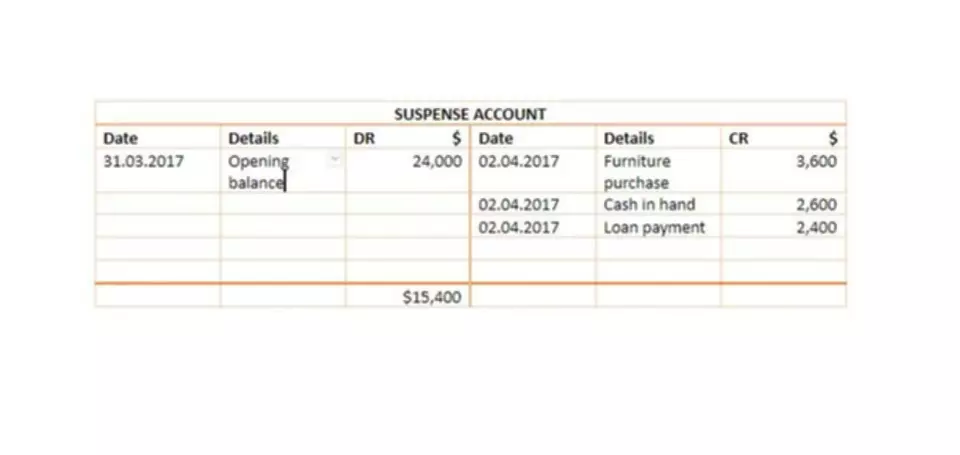Whats the Difference Between Bookkeeping and Accounting?
Content

Likewise, leaning on a skilled accountant can help you understand your business beyond the day-to-day and set you up to make smart choices about the future. Investing in both a bookkeeper and an accountant on your team ultimately sets up your business for the most success while keeping you free to focus on what you’re truly passionate about. They both involve tracking, recording, and analyzing financial transactions to ensure your business remains profitable and compliant with legal regulations. Bookkeeping focuses on the proper recording of financial transactions for your business. Usually, your bookkeeper would use double-entry accounting to record all your financial transactions.
- Although they may seem similar, there are many differences between bookkeeping and accounting.
- Bookkeepers are professionals who maintain accurate and up-to-date financial records, which include ledger accounts, income statements, and balance sheets.
- Bookkeeping serves as a foundation for financial reporting; thus, it is crucial for businesses of all sizes because it provides insights into their financial performance, cash flow, and overall stability.
- A bookkeeper handles most of the data entry and administrative work related to your business’s financial transactions.
- Take your business to new heights with faster cash flow and clear financial insights —all with a free Novo account.
The debits and credits offset each other with the goal being a net sum of zero to keep the books balanced. Many small business owners attempt to save money by performing the recordkeeping duties of a bookkeeper themselves with the help of automated software, such as Intuit or Quickbooks. This can help https://www.bookstime.com/ save money and keep a small business lean, although it requires a major time commitment and meticulous attention to detail from the business owner. As a small business owner, employing an experienced bookkeeper who can set up your books and maintain them accurately will free up invaluable time.
What Is Accounting?
The average hourly rate for a bookkeeper is $37, but this may vary depending on where you live and how experienced the individual is. Virtual bookkeepers are becoming bookkeeping vs accounting difference an increasingly popular solution if you are trying to save. The bookkeeper should be able to answer all questions about daily finances and the status of payments.

While these financial roles share common goals, they support different stages of the accounting process. Some businesses also partner up with bookkeeping and accounting organizations to smooth running their team, inventory, and company growth. While a bookkeeper can help with the precise details of the business, an accountant is better suited to do bigger-picture analysis and strategic planning. Accounting is a high-level process that produces financial models using financial data acquired by a bookkeeper or business owner. However, while the bookkeeper’s job is usually centered on transaction entry, the accountant’s is to analyze the information recorded by the bookkeeper, using accounting principles. While they mainly record financial transactions, bookkeepers are responsible for a variety of duties, which are important for maintaining a successful business.
When to call a financial professional
We believe that Bookkeeping and accounting is a very important part of every business. Flatworld Solutions has been in this domain for over 19 years now and has served several clients across the world. Our team comprises of certified, professional accountants who provide the best services in the industry.
- In this article, you will learn the differences between bookkeeping and accounting, as well as instances in which each member of your financial team is necessary.
- A bookkeeper usually performs these steps, however, an accountant may step in to complete these tasks, or oversee them as they’re completed by the bookkeeper.
- While the duties of bookkeepers and accountants can overlap, there are a few key differences.
- The average hourly rate for a bookkeeper is $37, but this may vary depending on where you live and how experienced the individual is.
- Think of bookkeeping as the first step in the holistic accounting process, preparing your business accounts for more complex tasks.
- Department of Labor’s Occupational Handbook, some of the most in-demand accounting jobs include comptroller, accounting manager, senior tax accountant, and internal auditors.
- Bookkeeping tasks involve tracking and recording a business’s financial transactions.
- A bookkeeper’s responsibilities are mainly transactional, gathering and entering financial transactions.
- An experienced bookkeeper can offer advice on ways to create effective financial systems so nothing falls through the cracks on a daily basis.
Accounting is a more subjective process than bookkeeping, which is primarily transactional. Whether you sell baseball cards, baseballs, or tickets to a baseball game, your business still needs a bookkeeper or an accountant, or ideally, both. A bookkeeper usually performs these steps, however, an accountant may step in to complete these tasks, or oversee them as they’re completed by the bookkeeper. Bookkeepers also post transactions using journal entries that track all account activities. Nurture and grow your business with customer relationship management software.
Essential Finance Skills
A bookkeeper must be able to shift focus easily and catch tiny, hidden mistakes in a budget or invoice. They often bookkeepers work a few jobs for various clients if they work as a consultant. However, if you need insight and advice on how to better operate your business at scale…you will need help from an accountant. Generally, while both occupations have common goals and tasks, they support businesses in different ways and at different phases of the financial cycle. Save time, money, and your sanity when you let ReliaBills handle your bill collection, invoicing, reminders, and automation..
What is the job of bookkeeping?
What are the duties and responsibilities of a Bookkeeper? On a day-to-day basis, Bookkeepers complete data entry, collect transactions, track debits and maintain and monitor financial records. They also pay invoices, complete payroll, file tax returns and even maintain office supplies.
There are opportunities for forensic accountants in many industries, like nonprofit work, government and law-enforcement agencies, law firms, and large corporations. Bookkeeping is a great starting point if you are interested in the field but not fully committed and want to test the waters. You may also be an ideal bookkeeping candidate if you want a good job with a respectable wage and decent security but may not be looking for a long-term career. Bookkeeping offers much lower barriers to entry, and the competition you face in the job search is less fierce.
Which Accounting Jobs Are in Demand?
Still stumped on how to handle bookkeeping vs. accounting tasks for your small business? Small business accounting software like QuickBooks helps you track your business finances all in one place, making it easily accessible to you and your accounting team. Once the bookkeeper posts all transactions, the accountant generates a trial balance that lists all business accounts and balances.
- Accounting is the interpretation and presentation of that data to business owners and investors.
- She is a former Google Tech Entrepreneur and she holds an MSc in International Marketing from Edinburgh Napier University.
- This can be helpful for your general financial health and for quarterly or end-of-year tax filings.
- Working in the cloud helps protect the most critical financial data your company holds, mitigates disastrous cybersecurity events, and ultimately, protects your business’s reputation.
- Public accounting generally pays the most to a candidate right out of school.
- A bookkeeper must be able to shift focus easily and catch tiny, hidden mistakes in a budget or invoice.
- The data you collect can help you decide whether to adjust your business’s budget, reevaluate how you allocate cash flow, and more.

